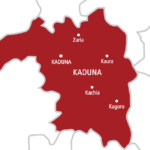The front-page headline on Saturday was about hoodlums attacking a truck conveying cartons of spaghetti along the Zaria-Kano expressway. On Sunday, Abuja residents raided and looted a government warehouse, followed by an attack on a truck carrying food items in the Dei-Dei area on Monday morning. It is a message from citizens showing their discontent with the harsh policies of this government.
It goes without saying that, since 2015, the adopted neoliberalism has brought out the worst in Nigerian leaders. It is different to the economic policies implemented between 1999 and 2015. These include debt relief for Nigeria, financial sector and power sector reforms, NEEDS and many social welfare programmes for poverty alleviation. These were economic policies, too, and they gave hope to the average Nigerian. So, it is not every economic policy that is faulty; it is the neoliberal policies that are not working. And yes, it is under the APC government.
Taking this administration in isolation, over the past nine months, the floating exchange rate system was unified, the naira was devalued, fuel subsidy payment was stopped, and there is an ongoing implementation of the Oronsaye Report—a lean government, among many other neoliberal policies. All these have sparked debate and concern. On paper, these measures are meant to stabilise and stimulate the economy, but, in reality, they are not working. And if at all they are, then they only favour the elite at the expense of the broader population.
Let’s remember that currency devaluation mainly favours exporting countries, not import-dependent economies like Nigeria, but speculators are blamed for the bad decision. The removal of fuel subsidy, a policy intended to reduce government expenditure and increase market efficiency, has, in practice, led to an increase in the cost of living for the average man.
Reports say they have resumed fuel subsidy payments, but nothing has changed. It is the poor who are experiencing extreme hardship, not the few elites who Tinubu claimed to benefit from subsidy payment. Repeating myself, if you want to see those benefitting from fuel subsidy payments, just look at those suffering from the removal.
In the face of these economic pressures, there are calls for a leaner government and minimal state intervention in the economy, as outlined in the Oronsaye report, which advocates for a reduction in the size and cost of governance. The report highlighted all the neoliberal code words that shift responsibility away from the government: efficiency, incentives, sound money, and fiscal prudence. They match the flowery words spelt out by neoliberal advocates: deregulation, liberalisation, privatisation, or fiscal austerity.
In practice, these strategies only prioritise reduced government spending on the majority of citizens but allow vanity spending on government officials, like the presidential fleet, yacht, exotic cars, and many other government extravagances for officials. The implementation of these policies will result in high unemployment due to retrenchment. It will reduce public services and social support for the citizens, deepening the hardships faced by many.
The consequences of these neoliberal policies are not merely economic. Over the years, we have seen a change in our societal norms and individual behaviours. Empathy, cooperation, and community well-being are now disregarded. The system has been distorted with corruption and nepotism, and success comes at the expense of others. This is not only a shift in economic models but in societal ethics and individual personalities as well. This transformation has put the sustainability of the economic system and its compatibility with our society into question.
But the critical question remains: could these hardships precipitate a citizen revolt? History teaches us that sustained economic pressure, especially when coupled with perceived social injustices and inequality, can become an incentive for widespread social and political mobilisation.
When the majority disproportionately bears the burdens of economic policies while a small segment of society appears to benefit, the seeds of discontent are sown. This discontent, if left unaddressed, will grow into more organised forms of protest and, potentially, significant demands for change. And the recent reaction in Zaria is an indication of what is to come.
The prospect of a citizen revolt is not merely theoretical; it is grounded in the principle that people when pushed to their limits, will seek to reclaim agency over their lives and livelihoods. The Arab Spring, the Yellow Vests in France, and numerous other historical precedents around the globe illustrate how economic hardship and social inequality can galvanise public sentiment and drive collective action. Such revolt is now gaining popularity in northern Nigeria, a region where civil society and a sense of communal identity exist; the possibility of mobilising revolts cannot be discounted.
But the path forward does not necessarily have to lead to conflict. There is an opportunity for the APC government to dialogue, re-evaluate its policies, and explore alternative economic models that prioritise inclusivity, equity, industrialisation and technology adoption.
A return to Keynesian principles or the East Asian-type developmental state model, which advocates for increased government expenditure—the return of government subsidies for industries, a social welfare system, a fixed exchange rate regime, more public sector services, and less vanity expenditure on government officials, presents one such alternative.

 Join Daily Trust WhatsApp Community For Quick Access To News and Happenings Around You.
Join Daily Trust WhatsApp Community For Quick Access To News and Happenings Around You.


